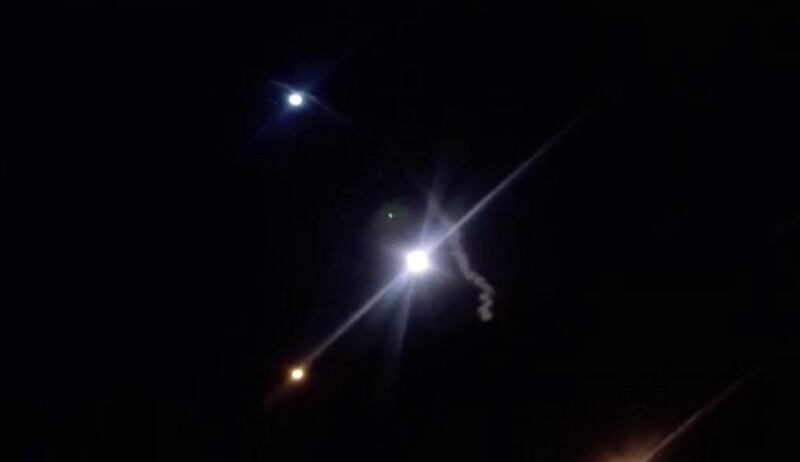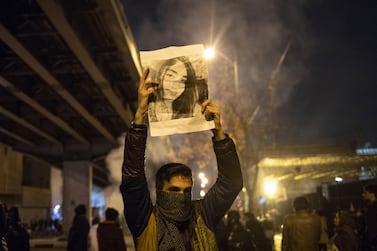Iraqi Prime Minister Adel Abdul Mahdi said he received a verbal message from Iran around midnight informing him that the response to General Qassem Suleimani's killing had started or would start soon.
Iran launched missiles on US forces in an Iraqi airbase in western Iraq as well as on the Kurdistan regional capital of Erbil on Tuesday night.
Mr Abdul said Iran informed him that the "strikes would only target US military locations" but did not specify which targets would be hit.
He confirmed that there appeared to be no causalities.
An Iranian response has been anticipated for the deadly US drone strike that killed Gen Suleimani and Iranian-backed Iraqi officials.
Mr Abdul Mahdi said he received a call from the US while the missiles were falling on the American wing of the Al Asad airbase in Anbar and Harir Air Base near Erbil.
He said he issued warnings to Iraqi troops as soon as he received word.
The Iraqi official called for restraint and for all sides to respect international agreements and rejected any violation of its sovereignty and attacks on its soil.
Mr Abdul Mahdi said this dangerous crisis threatens a "devastating all-out war" in Iraq, the region, and the world.
His comments were echoed by Iraqi President Barham Saleh, who openly condemned the missile strikes.
Mr Saleh said he “feared dangerous developments” in the region.
“We condemn the Iranian missile bombing that hit military installations on Iraqi territory and renew our rejection of the repeated violation of state sovereignty and the transformation of Iraq into a battlefield for warring sides,” his office said in a statement.
Iraq’s parliamentary speaker Mohamed Al Halbousi also denounced the attacks and called on the government to “take necessary actions to preserve Iraqi sovereignty”.
“We confirm our refusal for the parties to use Iraq to settle their scores,” Mr Al Halbousi said in a statement.
It comes as leaders of the Kurdistan Regional Government called for de-escalation and for the region to be kept out of rivalries.
President Nechirvan Barzani, Prime Minister Masrour Barzani and speaker of Kurdistan's parliament Rewaz Fayeq met on Wednesday and expressed concern at the situation.
“In regards to the recent events, and in particular this morning’s, the Kurdistan region reiterates that military solution will in no way solves the problems,” they said in a statement.
“The Kurdistan region supports de-escalation of the situation and seeks dialogue and diplomatic solution to the problems. It also seeks stability and peace and urges all parties to refrain from dragging the Kurdistan region into the rivalries.”
The Kurdish leaders said they view the backing of the international coalition fighting ISIS as a “necessity”, particularly as the group has recently began to strengthen.
The United Nations Assistance Mission in Iraq called for dialogue between the US and Iran.
“We call for urgent restraint and a resumption of dialogue. Iraq should not pay the price for external rivalries,” UNAMI said in a statement.
The UAE Foreign Ministry said it was closely following the developments while reaffirming the necessity for de-escalation.
It stressed “the importance of dialogue and political solutions.”







